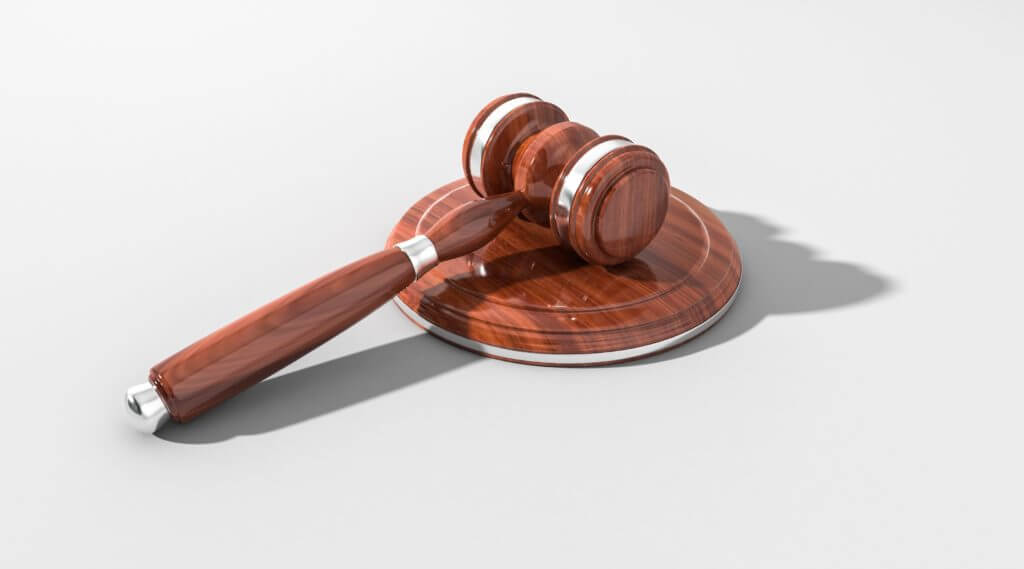COVID and the courts
 These are strange times for all of us, and that includes the Vermont courts. Several people have asked me recently whether the courts are open, and how they are functioning, so I thought I’d share the answers with all of you.
These are strange times for all of us, and that includes the Vermont courts. Several people have asked me recently whether the courts are open, and how they are functioning, so I thought I’d share the answers with all of you.
Yes, courts are open. However, not in the way they used to be. Back in March, the Vermont Supreme Court issued an emergency order canceling all court hearings other than emergencies (Administrative Order 49). The staffing schedule was cut as well, so that we could keep all staff at least six feet apart. In essence, we had about half the staff in the courthouse at any one time. Even though most hearings and trials were not happening, a lot of the work in the courts involves written filings by lawyers or other parties, and written orders being issued, so the staff still had to process all of that. Since then, we have adjusted office furniture and staff seating to accommodate full staff again (though all staff must be masked in the building unless they are alone in a private office). Cleaning of high-touch surfaces has been increased, and shared spaces such as break rooms are limited to one person at a time.
Since June 1, the Supreme Court has amended its order to allow non-emergency hearings to be scheduled, although the courts are encouraged to do as many hearings as possible by video or phone rather than having people come to the courthouse. In addition, we are limited to five hours of hearing time a day to allow staff time to catch up on all that fell behind when staffing was cut back. Anyone filing or picking up documents has to exchange them at the door rather than entering the building.
Different courts are doing things very differently at the moment. Some are doing almost all online and phone hearings; some have more in-person hearings. This is due in part to the different kinds of cases in different courts, and in part to a lack of equipment and training to use the necessary technology. We are ramping up with new equipment and software across the state, but that will take some time. Even when we are doing hearings online, there is a mix of software being used at the moment. Thus, if you receive a hearing notice, it may tell you the hearing will be by video, and you will need to follow the link or go to the online site as directed in the notice.
However, because not everyone has the ability to participate in an online hearing (because of bandwidth limits, limited monthly access, or even the lack of a quiet location), we also provide the option of a phone number to call in instead.
If parties to a case object to having the hearing by video or phone, they can file a request for a live hearing, and the judge will decide whether that is necessary. If you do come to court for a hearing, you must answer health screening questions at the door and wear a mask at all times while in the building.
Even the usual setup of lawyers sitting next to their clients in court is not possible due to the need to keep a six-foot distance, so we have rearranged the seating in the courtroom. In some courtrooms, witnesses are testifying from a different location in the room to keep them safely distanced from others. We are also limited to ten people in a courtroom at one time.
One of the biggest challenges we face—and courts across the country are facing—is how to do jury trials. The Supreme Court order says that no criminal jury trials may take place before September, and no civil jury trials before January. Normally we bring dozens of people to the courthouse at the same time to select jurors from that group. Then the 10, 12 or 14 jurors selected for a trial are seated right next to each other in the jury box during the trial and sit right next to each other around a conference table when they are on breaks and when they are deliberating at the end of the trial.
It is impossible to do this as usual if we are going to maintain safe social distancing for the jurors, so we are trying to come up with creative solutions—such as having the jurors sit spaced out in the public seating area, and letting them use a second courtroom as their private room. However, figuring all this out is challenging. We need to balance the parties’ need to have their cases resolved with the safety of everyone involved, including citizens who are asked to serve as jurors. We are hoping that some people will choose to have a “bench trial”—meaning a judge or judges decide the case—instead of a jury trial so that their cases can move forward sooner.
If you would like to read the Vermont Supreme Court’s most recent version of the emergency order (Administrative Order 49), or the recent Report on Restarting Criminal Jury Trials, you can go to our website and click on the link at the top of the page for “information regarding the Coronavirus Disease 2019 (COVID-19) and court operations.”
The Honorable Helen Toor is a superior judge with the Chittenden Civil Division.

